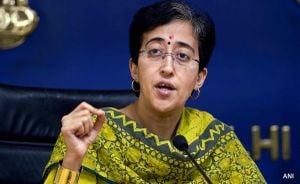The impending German federal elections on February 23, 2025, are set against a backdrop of political turbulence and economic uncertainty. At the forefront of the electoral battle is the meteoric rise of the far-right party, Alternative for Germany (AfD), which poses significant challenges to the traditional political order. Recent polls indicate the AfD has garnered considerable support, particularly among voters disillusioned with the mainstream parties, prompting experts to warn about potential upheavals within the nation.
According to Paul Maurice from Ifri, the AfD's growing appeal to voters could undermine the stability of both Germany and the wider European continent. Once viewed as fringe, the party has made significant electoral gains, especially in eastern Germany, where many have expressed discontent over the country’s handling of recent crises, including migration and the economic downturn following the war in Ukraine.
The AfD has been adept at channeling societal frustrations around immigration, security, and economic instability, exploiting sentiments arising from the past years of decline. The party has seen fortunes rise, with unprecedented voting percentages exceeding 30% in regions like Saxony, Thuringia, and Brandenburg during regional elections, indicating shifting electoral landscapes.
Compounding these challenges for traditional parties is the widespread dissatisfaction with current political leadership. Olaf Scholz, Germany's Chancellor, suffers from low approval ratings, with only 23% of Germans expressing satisfaction with his government's performance amid persistent economic strife. The country has grappled with recession, reporting a growth contraction of 0.2% last year, hindering various industrial sectors, particularly automotive manufacturing.
The challenges outlined by Maurice are echoed by political analyst Isabell Hoffmann, who notes the palpable sense of unease among the electorate. Growing numbers of attacks, coupled with perceptions of insufficient immigration control, have intensified national conversations about security, empowering right-wing narratives. Currently, 60% of Germans believe there is too much immigration, which plays straight to the AfD’s rhetoric.
During this pre-election period, the conservative CDU (Christian Democratic Union) party, led by Friedrich Merz, has gained traction. The CDU's position is bolstered by the unpopularity of Scholz and the perception of his administration’s failure to mitigate crisis. Merz leads with promises to address economic issues, proposing tax cuts for wealthy individuals and urging stricter immigration policies, aligning closely with AfD's message to capture votes from their disgruntled electorates.
Merz’s recent assertions, as reported by multiple sources, reflect his desire to distance his party from Angela Merkel's policies. He has encountered controversies, with his stances on social issues raising eyebrows, yet he is perceived as offering the public the change they desire. By embracing populist themes, Merz attempts to resonate with voters longing for renewed strength and stability within the German political framework.
International influences also weigh heavily on the electoral scene. Notably, American figures such as Elon Musk and Vice President J.D. Vance have expressed support for the AfD, leading to scrutiny about foreign meddling and the complicated relationship Germany has with the U.S. This interventionist approach has left many Germans feeling unsafe and skeptical of the alliance with the U.S., with historical ties quickly becoming entangled with fears of U.S. overarching influence.
These dynamics have resulted in heightened voter uncertainty, with recent surveys reporting 27% of voters still undecided about their choices. The potential for coalition government formation appears increasingly murky, as traditional parties might struggle to regain the trust of the electorate who feel alienated by mainstream politics.
The ramifications of these elections extend beyond Germany’s borders. Should the AfD continue its upward trend, questions arise about the future of the European Union and Germany’s role within it. With traditional parties potentially sidelined, discussions surrounding EU solidarity and policies, especially concerning immigration, could tilt significantly with the rise of euroscepticism among voters.
Friedrich Merz’s positioning mirrors this complexity as he grapples with the conflicting demands of various voter blocs. While he has publicly stated intentions not to ally with the AfD, the immense pressure and historical precedent may compel him to navigate these turbulent waters astutely. The outcome of the elections might herald not just new policies and governance but could redefine the very fabric of German political discourse.
The Central European state, once viewed as the bedrock of stability post-1949, faces new tests as its electorate grapples with deep national questions about identity, cohesion, and the course of its democratic future. Voter anxieties reflect broader societal fractures, with 69% expressing concerns about the stability of future governance. Currently, the German populace finds itself at a crossroads, one which could irrevocably alter the nation’s political identity.
With palpable tension and uncertainty hanging over the elections, all eyes will be on Germany this February, as the electorate decides the path forward amid growing instability. The results of this electoral battle will have repercussions not only for German society but for the integrity of the European project as well.



